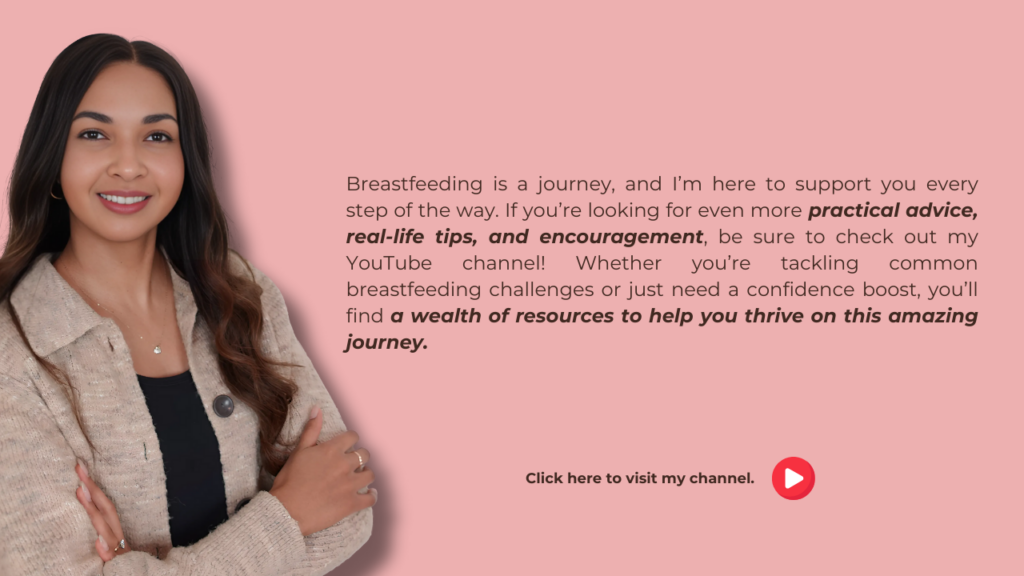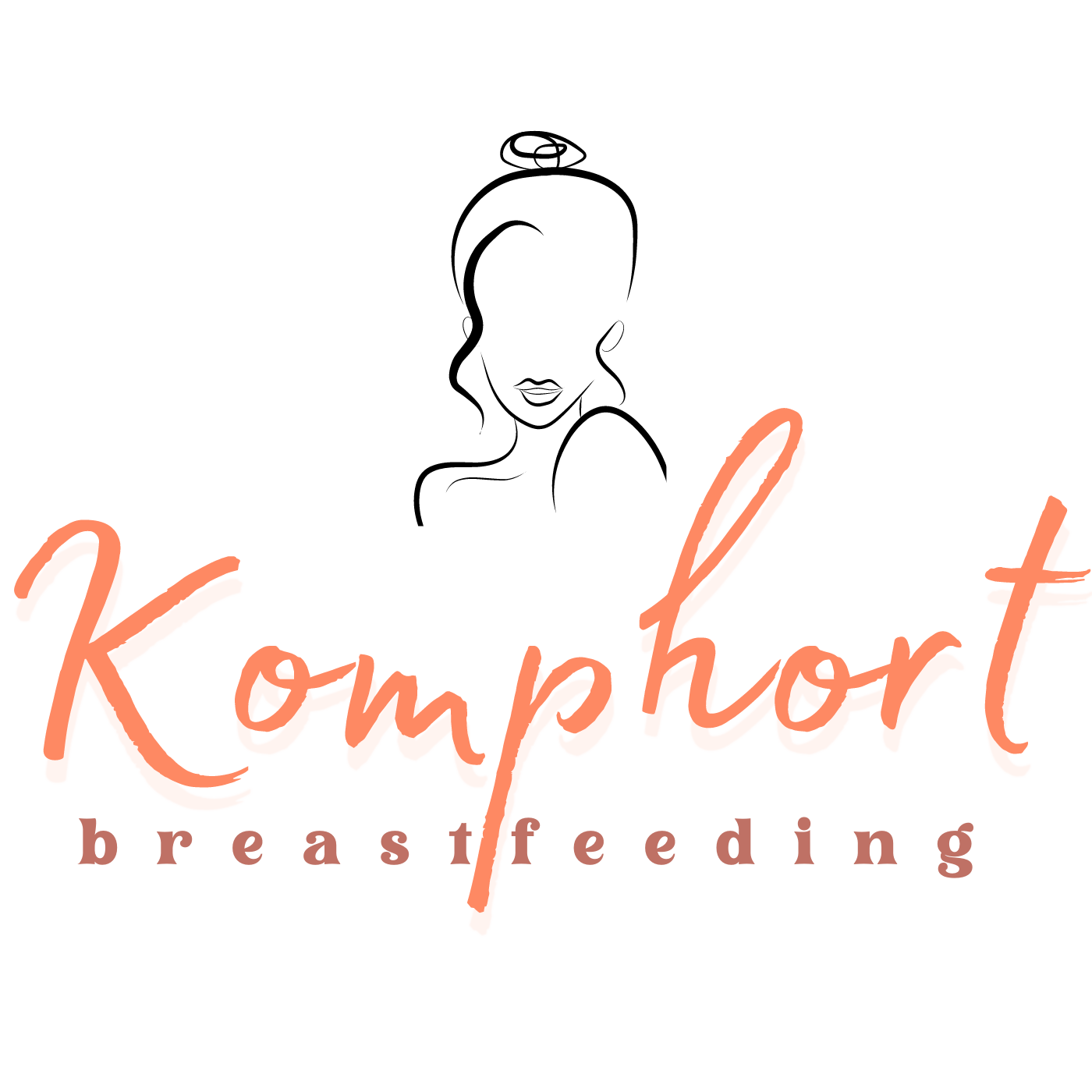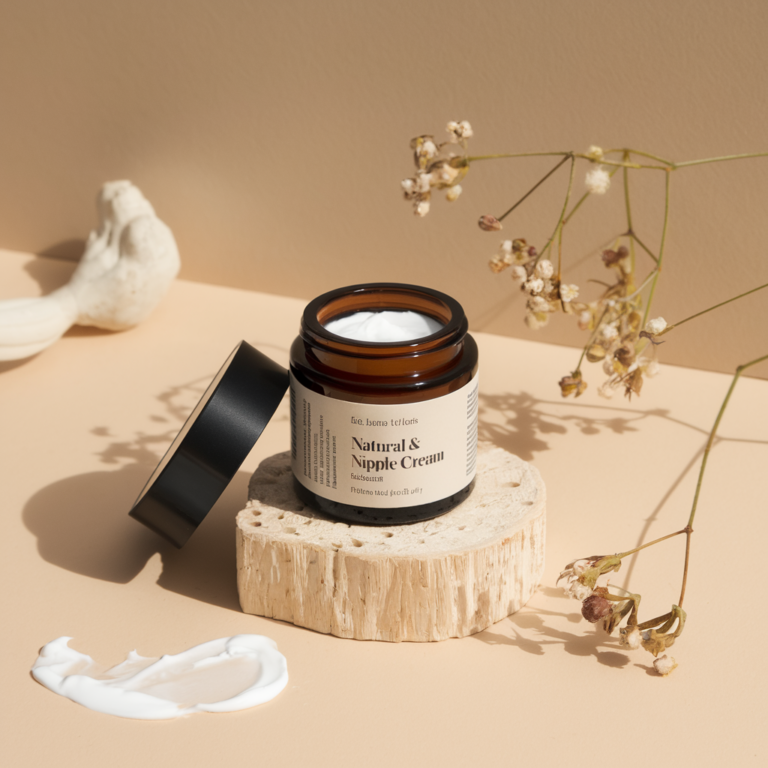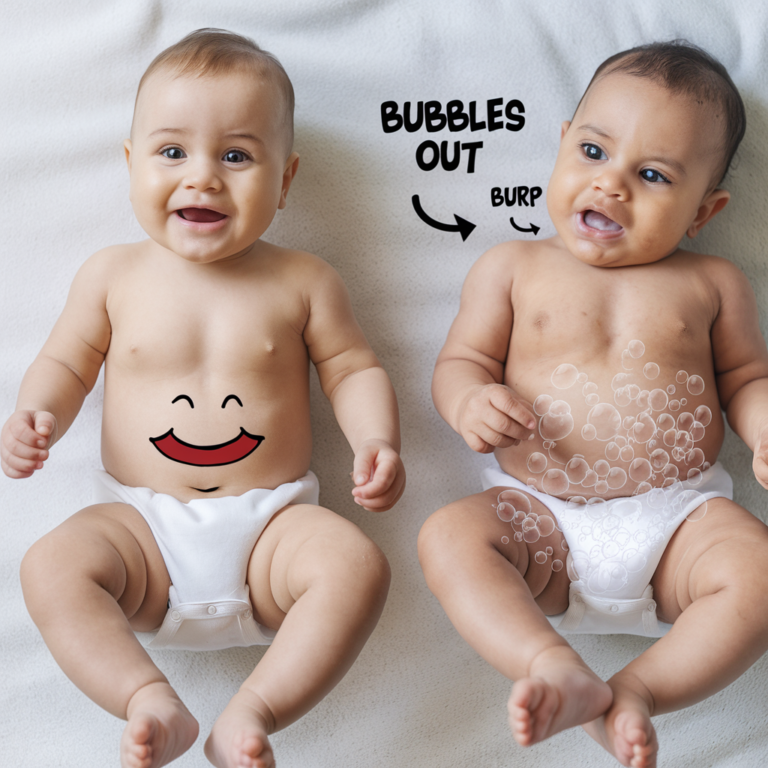If you’re a new mom or soon-to-be mom, you may be wondering, “How long is the newborn stage?” The newborn stage is a crucial time in your baby’s life, filled with incredible milestones and moments that will shape their development.
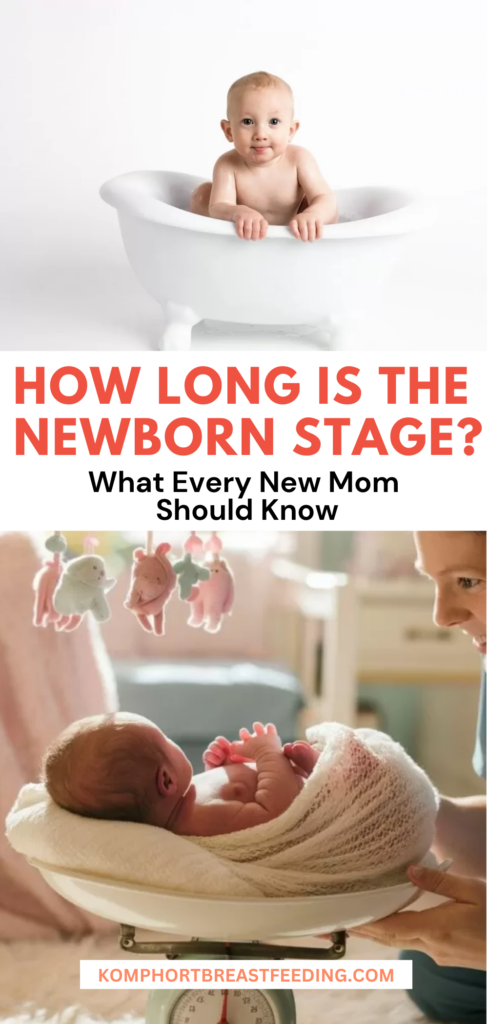
In this blog post, we’ll explore everything you need to know about the newborn stage, from its typical duration to the physical and emotional changes you can expect in your little one.
Defining the Newborn Stage: What to Expect
Venturing into the realm of motherhood introduces a plethora of questions, with one of the most common being, “How long is the newborn stage?” This magical yet intense period is the first act in the lifelong play of parenting, characterized by rapid development, awe-inspiring milestones, and the profound beginning of a deep, enduring connection between you and your baby.

The newborn stage is typically defined as the first month of life, but don’t be surprised if it feels like it stretches a bit longer. Some experts argue that this period extends up to the first three months as babies continue to navigate and adjust to their new world outside the womb. During these initial weeks, your baby is on an incredible journey, transitioning from the coziness of the womb to the vastness of the outside world. This stage is marked by significant physical, emotional, and social development that lays the foundation for your baby’s future growth.
Imagine this period as the ultimate get-to-know-you session where both you and your baby are learning about each other. You’re mastering the art of interpreting their different cries, while they’re getting used to the sounds of your voice, the touch of your hands, and the comfort of your presence. This stage is all about adjustment, for both of you, with your baby learning to feed, sleep, and even breathe in a new environment.
It’s a time of intense care, as newborns demand constant attention to ensure they’re warm, fed, and comforted. The rhythms of the newborn stage are unpredictable, with frequent feedings (hello, sleepless nights!) and the introduction of first routines. Despite the challenges, these early weeks are imbued with incredible moments of firsts—first eye contact, first smiles, and the first unmistakable signs of recognition that bond you to your baby.
Understanding the newborn stage’s intensity and beauty prepares you to embrace both its challenges and its joys. As you navigate this fleeting period, remember, you’re not just caring for your newborn; you’re laying the groundwork for a lifetime of love and connection.
Typical Duration of the Newborn Stage
The clock starts ticking the moment your baby enters the world, marking the beginning of the newborn stage—a phase that’s as fleeting as it is enchanting. While the first blush of parenthood paints the newborn stage as the initial month of life, the plot thickens as we delve deeper. The true narrative of the newborn journey often extends to three months, a time frame that catches many by surprise but is essential for understanding the full spectrum of early development.

During these initial chapters of life, your baby is embarking on an epic journey of growth, navigating the newness of their existence with every passing day. It’s a period characterized by rapid developmental strides, not just in physical growth but in the foundational layers of their emotional and cognitive landscapes. The arbitrary one-month marker is merely the beginning of this rich and complex stage.
As we explore this timeline, it’s crucial to recognize that the definition of ‘newborn’ stretches to accommodate the whirlwind of changes occurring. The first three months are not just a continuation of the newborn stage; they are a vibrant testament to the resilience and adaptability of your little one. Your baby is not the same being from one week to the next; they are constantly evolving, mastering new skills, and deepening their bond with you.
In this light, the newborn stage is not a fixed period but a dynamic, transformative journey that sets the stage for all the milestones to come. It’s a time for you and your baby to explore, learn, and grow together. As you mark each day off the calendar, remember that the passage of time in the newborn stage is less about counting days and more about celebrating the remarkable leaps in development. Each day brings new challenges and triumphs, weaving together the intricate tapestry of your baby’s early life.
So, when pondering how long the newborn stage lasts, think beyond the calendar. Embrace the complexity and beauty of these first three months, for they are brimming with opportunities for discovery and connection that will shape both your baby’s future and your journey as a parent.
Physical Changes and Development
As your newborn embarks on their first few months of life, the physical transformation they undergo is nothing short of miraculous. Imagine, if you will, a tiny being who, in the span of just three months, will nearly double in weight and add inches to its length. This rapid growth phase is crucial and one of the most palpable indicators of your baby’s health and well-being.
During this whirlwind period, you’ll witness a parade of ‘firsts’ that serve as milestones in your baby’s physical development. One week, you might be marveling at how they attempt to lift their head during tummy time; the next, you could be celebrating their mastery of more controlled movements. These achievements are not just for the baby book; they’re pivotal steps in your child’s journey toward becoming more interactive with the world around them.
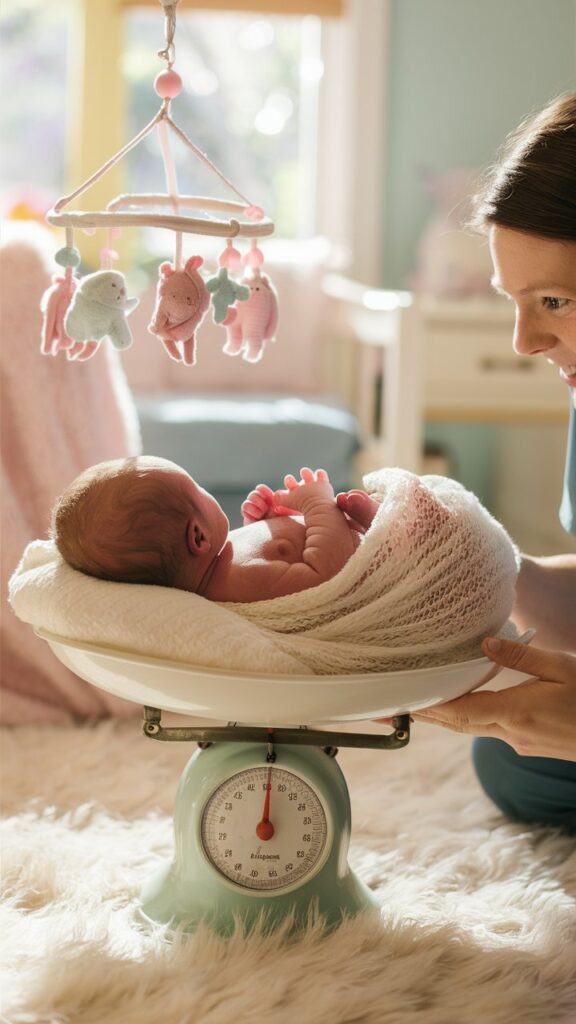
Weight gain is often the most talked-about aspect of a newborn’s physical development, but there’s so much more happening beneath the surface. Your baby’s skeletal system is strengthening, and its neural pathways are expanding at an astonishing rate, paving the way for future motor skills, cognitive development, and sensory experiences. It’s a time of profound growth that sets the stage for all the crawling, babbling, and playing that lies ahead.
But let’s not forget the subtler signs of physical development. Your baby’s vision is sharpening, focusing more on objects and faces, especially yours. Their hearing is also becoming more acute, tuning into the sounds of your voice and the environment. These sensory developments are critical for emotional and social growth, facilitating a deeper connection with you and the world.
Observing and supporting your newborn’s physical development during these initial months is both a privilege and a profound responsibility. Engage with your baby through gentle play, encourage tummy time under supervision, and celebrate each new movement and milestone. Remember, every baby grows at their own pace, so rather than comparing, cherish the unique journey of growth and discovery that your baby is on. Watching your little one achieve these early milestones is a remarkable experience that underscores the magic of the newborn stage.
Emotional and Social Development
The emotional and social development of newborns is a fascinating voyage of discovery and connection. As they navigate the earliest stages of life, these tiny beings are hard at work, not only growing physically but also laying the foundational stones of their emotional and social selves. Picture your newborn as a budding socialite in the infant world, gradually learning the art of communication and emotional expression, starting with the most primitive yet powerful tools they have: eye contact, cries, and eventually, those heart-melting smiles.
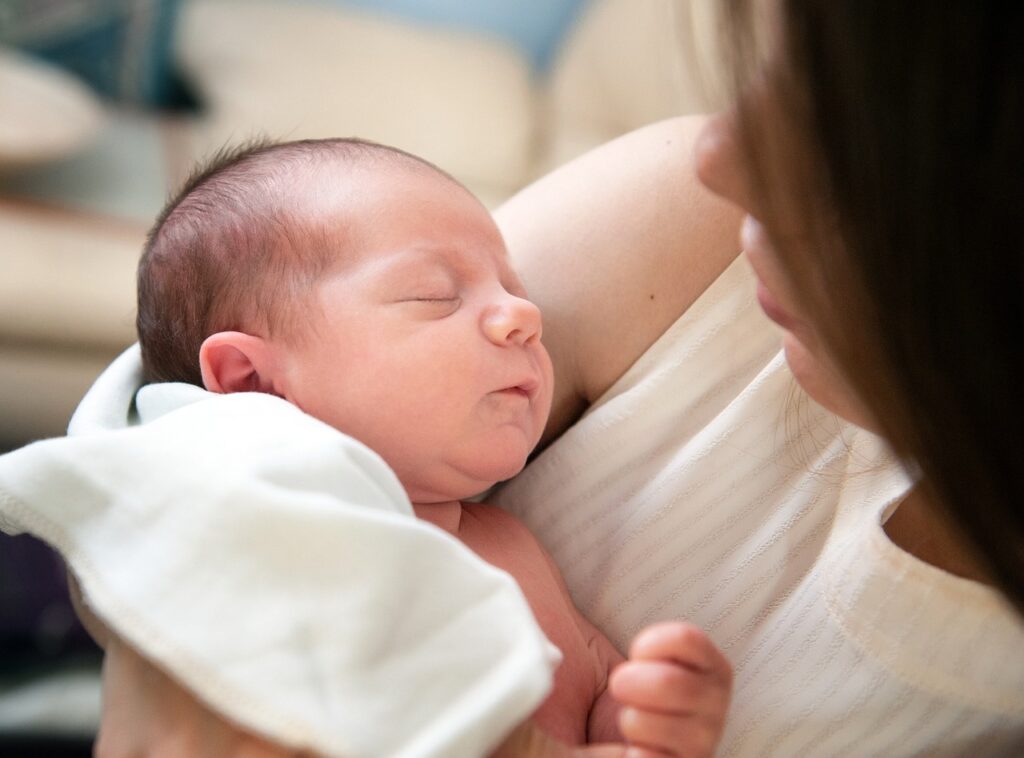
In these initial months, your newborn is developing what psychologists call “attachment.” This isn’t just about affection; it’s about your baby recognizing you as their safe haven, their primary source of comfort and security in this vast new world. Each time you respond to their needs, whether it’s a cry for food or a need for cuddles, you’re reinforcing this bond, teaching your baby that they can trust and rely on you. This period is critical, as these early interactions set the groundwork for your child’s future relationships and how they view the world around them.
But this stage isn’t a one-way street; it’s a dance of mutual growth and understanding. As your baby learns to read cues from you, you’re also learning to interpret their unique ways of communicating. This reciprocal relationship fosters not only a deep emotional connection but also aids in your baby’s social development. They begin to understand the basic ebb and flow of human interaction through the simplest exchanges – your soothing tones, the comfort of your touch, and the reassuring presence you provide.
Amidst the sleepless nights and the endless cycle of feeding and changing, you’re participating in one of nature’s most intricate rituals: the formation of human connection. Your baby, in their seemingly inscrutable way, is navigating the complex realms of emotion and social interaction. They’re laying down the emotional and social infrastructure that will guide them throughout their lives, all within the cozy, loving confines of your arms. So, as you witness each coo, each gaze, and every subtle sign of recognition, know that these are the moments where the emotional and social tapestry of your baby’s life begins to take shape.
Bonding Time: Building Early Connections
Bonding with your newborn is not just a part of the routine; it’s the heart and soul of early parenthood. This precious time lays the foundation for a lifelong connection, providing your baby with the emotional security they need to explore the world confidently. From the gentle warmth of skin-to-skin contact to the soothing timbre of your voice, every moment spent in close communion strengthens this bond.
Engaging in bonding activities such as cuddling, singing, and talking to your baby can seem like simple daily tasks, yet they are incredibly powerful in their impact. Imagine, for a moment, the world from your newborn’s perspective—every touch, sound, and sight is a learning experience, and your presence is their most reassuring guide. Through consistent and loving interactions, you’re not just caring for their basic needs; you’re teaching them the language of affection, trust, and comfort.
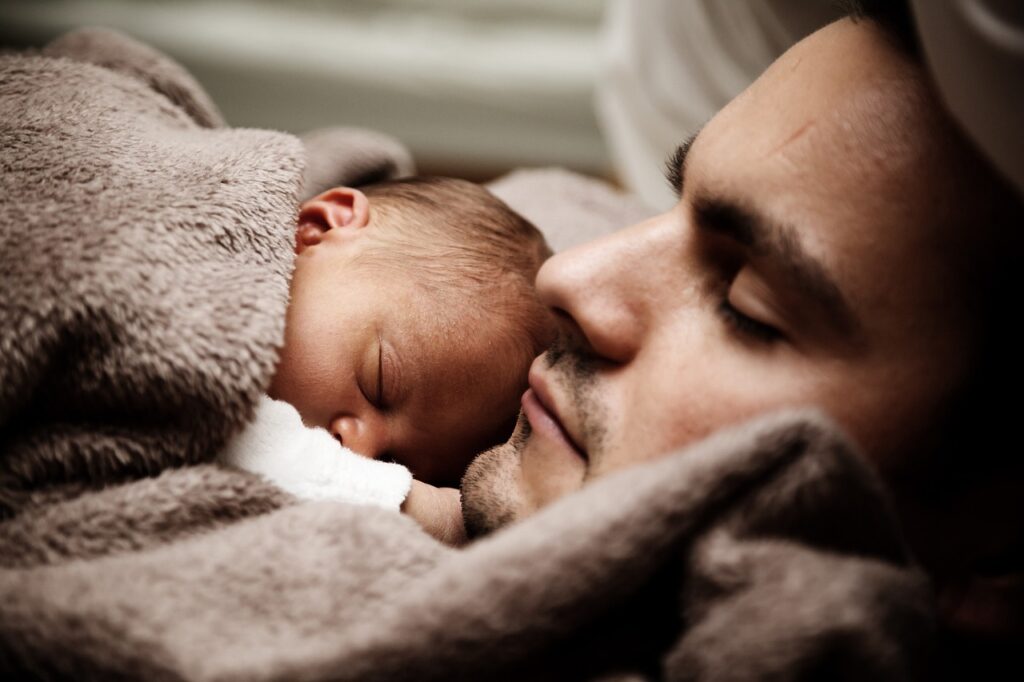
Skin-to-skin contact, in particular, is a remarkable practice. It’s more than just a method to calm and soothe; it’s a silent conversation between you and your baby, one that speaks volumes about safety, love, and belonging. This contact also plays a critical role in regulating your baby’s heartbeat and temperature, showcasing the incredible power of physical connection.
Similarly, eye contact is a profound tool for emotional connection. It’s one of the first ways your baby will try to communicate with you, offering a glimpse into their developing personality and emotions. Responding to your baby’s gaze with smiles and gentle conversation not only nurtures their social development but also reinforces your role as their trusted caregiver and source of comfort.
Responsive caregiving, where you learn to interpret and respond to your baby’s cues, is crucial during this stage. It may feel like a dance where you’re both learning the steps, but with patience and attentiveness, a rhythm emerges—one where your baby feels heard and understood, and you grow more confident in your parental instincts.
Remember, bonding is a dynamic and evolving process, unique to every parent and child. It’s built on the everyday moments—the midnight feedings, the soothing lullabies, and the quiet afternoons spent rocking in a chair. These experiences, though fleeting, are the building blocks of an unbreakable bond, one that will continue to deepen and enrich both your lives.
Bathing and Hygiene: Keeping Your Newborn Clean
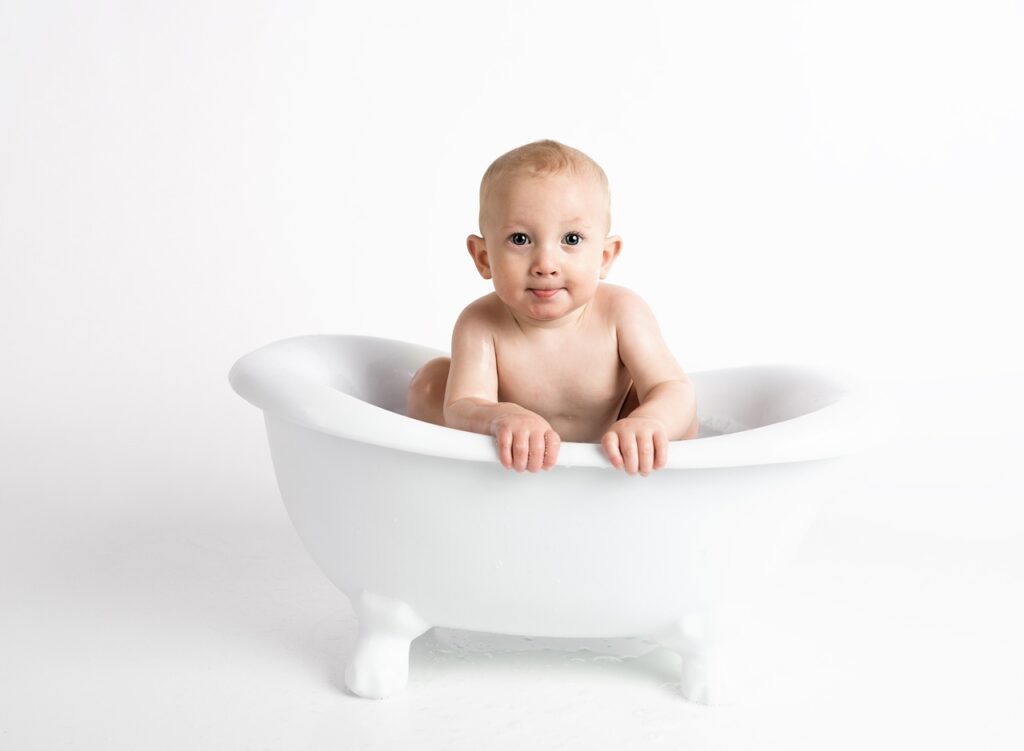
Diving into the world of newborn hygiene, especially when it comes to bath time, can feel like navigating uncharted waters for many new moms. Bathing your newborn isn’t just about keeping them squeaky clean; it’s a delicate dance of safety, comfort, and bonding. The thought of handling such a tiny, slippery human can indeed be nerve-wracking, but with the right approach, it transforms into a nurturing experience that enhances your connection with your baby.
Firstly, it’s crucial to gather your courage along with your supplies. You’ll need a baby bathtub or a clean sink, lukewarm water, a soft washcloth, gentle baby soap, a towel (preferably with a built-in hood for extra coziness), and a clean diaper and clothes. Ensuring everything is within arm’s reach before you start is key because once your baby is in the water, there’s no stepping away.
Timing is everything when it comes to bathing a newborn. Opt for a moment when your baby is content and alert, not immediately after feeding to avoid any upset tummies. The water should be warm but not hot, think comfortable for your inner wrist or elbow, as babies’ skin is much more sensitive than ours.
The process itself should be quick and gentle. There’s no need for daily baths in the early stages; two to three times a week is sufficient unless a diaper disaster dictates otherwise. Use a soft washcloth to gently cleanse their skin, paying particular attention to the folds. The soap should be used sparingly, as too much can dry out their delicate skin.
Beyond cleanliness, bath time offers a multisensory learning experience for your baby. The feel of the water, the sound of splashing, and the gentle touch of your hands not only get them clean but also contribute to their sensory development. It’s a perfect time to talk, sing, and engage, making those moments of eye contact that enrich the bond between you and your baby.
In the realm of newborn care, mastering the art of bathing and hygiene is both a rite of passage and a daily act of love. It’s about embracing the messy, the mundane, and the miraculous, all wrapped up in the simple act of washing those tiny toes.
The Emotional Journey for New Moms
Embarking on the journey of motherhood brings with it a tidal wave of emotions that can both exhilarate and exhaust. As you find yourself in the throes of the newborn stage, it’s akin to riding a rollercoaster in the dark—thrilling highs of profound love and bonding moments, punctuated by lows of fatigue and anxiety. This emotional rollercoaster is a natural part of becoming a new mom, a time when your heart is as open and vulnerable as it’s ever been.
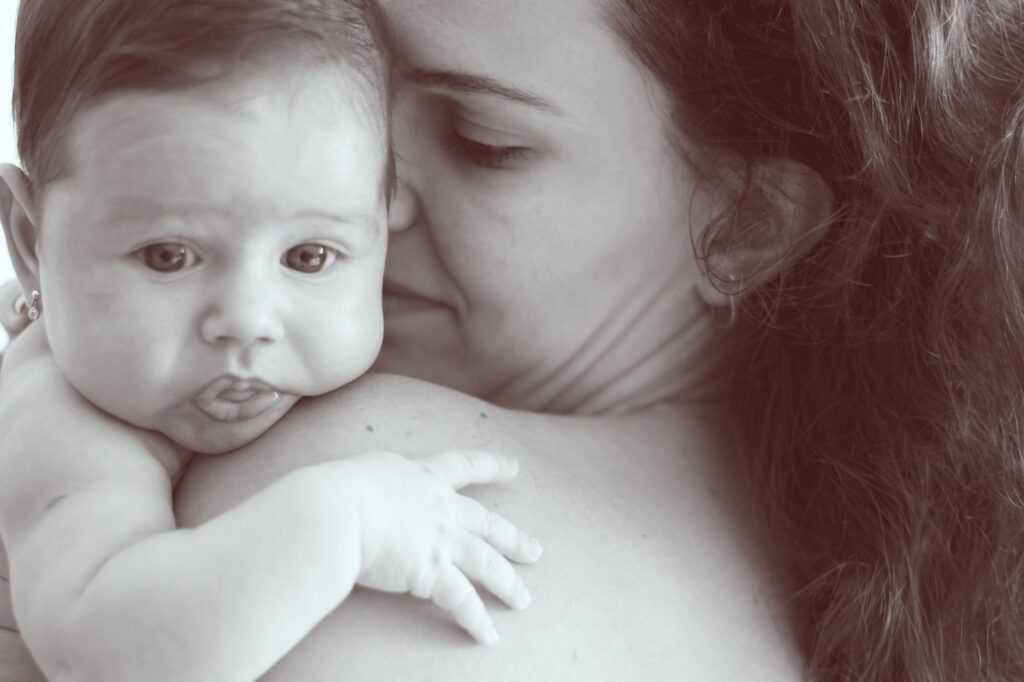
Feeling overwhelmed isn’t just common; it’s practically a rite of passage for new moms. It’s important to acknowledge these feelings, to give them space to breathe rather than pushing them aside. In the quiet moments, amidst the whirlwind of feedings and diaper changes, you might find yourself questioning your ability to meet the endless needs of your tiny human. Remember, it’s okay to not have all the answers. It’s okay to feel unsure. These feelings don’t diminish the incredible job you’re doing; they signify the depth of your love and commitment.
One crucial lifeline during this time is the power of community—whether it’s leaning on your partner, connecting with fellow moms, or opening up to family and friends. Sharing your experiences can transform feelings of isolation into feelings of connection and camaraderie. It’s these bonds that light the way through the more challenging times, reminding you that you’re not alone on this journey.
So, as you navigate this new terrain, give yourself grace. Allow yourself to feel deeply, to embrace both the joy and the challenges. This stage, with all its intensity, is but a chapter in the beautiful story of motherhood you’re beginning to write.
Celebrating Milestones: The Joys of Early Motherhood
Every milestone in the newborn stage is a testament to the miraculous journey of growth and discovery. These moments, fleeting as they may seem, are monumental milestones that mark your baby’s journey and your blossoming as a parent. Imagine the pure joy of witnessing your baby’s first genuine smile—not a gas-induced grin, but a smile of recognition, aimed right at you. Or the magic of the first time they grasp your finger, not by chance, but with intention, communicating a bond that words cannot express.
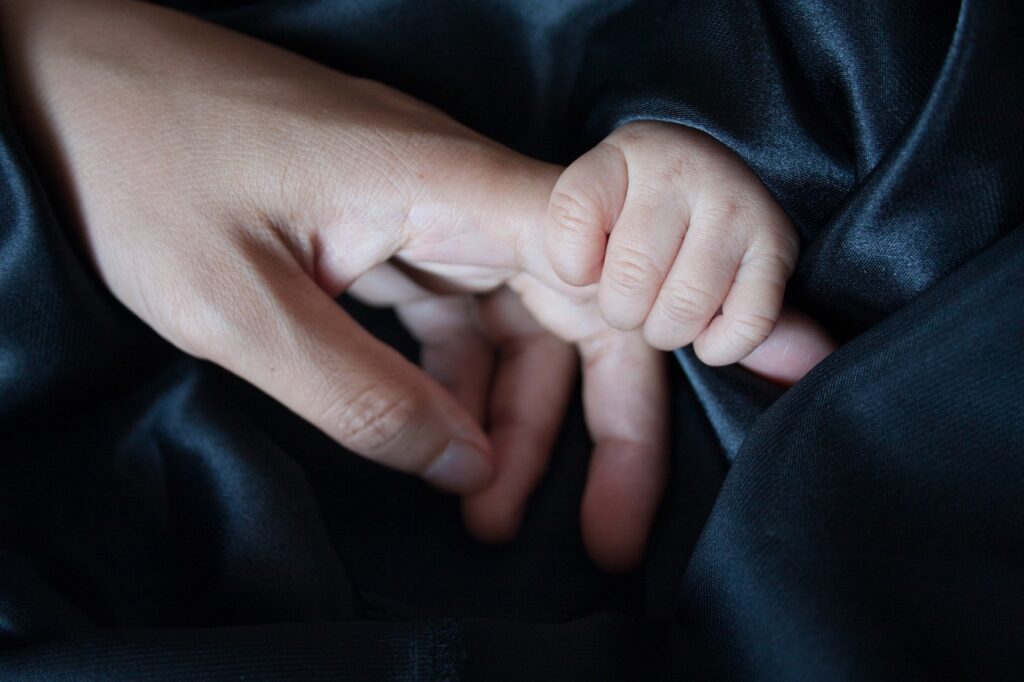
These milestones are not just check marks on a developmental chart; they are the shared victories that fortify the deep, unspoken connection between you and your baby. They remind you that amidst the sleepless nights and the endless cycle of feedings, there’s profound beauty in the simplicity of your baby’s first achievements.
Each coo, each gaze, each spontaneous smile serves as a beacon of joy, illuminating the unique path you are forging together. So, take a moment to pause, breathe, and soak in the wonder of these early days. Celebrate each new discovery, for these are the precious moments that enrich the tapestry of early motherhood, leaving imprints on your heart that last a lifetime.
Ready for More Expert Tips on Motherhood?
